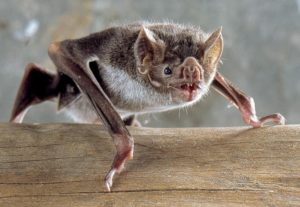
New Study Finds That Vampire Bats Practice Social Distancing And Avoid Big Groups When They Fall Ill
Bats are wiser than humans?
A new study that was published found out that vampire bats practice social distancing from other bats when one of them falls ill.
Looks like they also have preventative measures to prevent mass transmissions eh.
A team of scientists from the United States of America injected a number of bats endotoxins that are capable of stimulating an immune response and attacked proximity sensors to them.
They then recorded the movements of the animals.
After injecting the endotoxins, they found that sick bats spent less time associating with bats from their group and were spending less time in general with other bats.
The bats were also less socially connected with the ones that were healthy.
The researchers of the study said that bats were social distancing from others to avoid getting others sick.
The paper, which was published in Behavioural Ecology, a journal, said:
When animals are sick, they often encounter fewer individuals, we tracked this unintentional “social distancing” effect hour-by-hour in a wild colony of vampire bats. As tracking technology improves the capacity to create dynamic animal social networks from large, high-resolution datasets, we expect researchers to gain new insights into the patterns and processes underlying the spread of pathogens, information, or behavioural states.
The study that we are talking about included 31 adult female vampire bats.
They were captured from a hollow tree in Belize, which is located in Central America.
Half of the bats that were captured were injected with endotoxins. This was done to make them sick.
The other half only received harmless saline injections.
The bats were then given proximity sensors and were sent off on their way.
Simon Ripperger of Ohio State University released a statement about the research, where they said:
The sensors gave us an amazing new window into how the social behaviour of these bats changed from hour to hour and even minute to minute during the course of the day and night, even while they are hidden in the darkness of a hollow tree. We’ve gone from collecting data every day to every few seconds.
The bats that got injected with substances that challenged their immune system was found sleeping more, moving less, and were not socially active.
Looks like bats are more understanding than humans these days.
The researchers in the study concluded this study by saying:
In this field experiment, we showed that these effects of sickness behaviour extend to proximity-based association durations and social network connectivity in the natural environment. Sickness behaviour can therefore slow the spread of a pathogen that is transmitted at higher probability with higher rates of physical contact (e.g., grooming) or closer proximity.
What are your thoughts about the incident? Let us know what you think by leaving a comment in the comments section below!